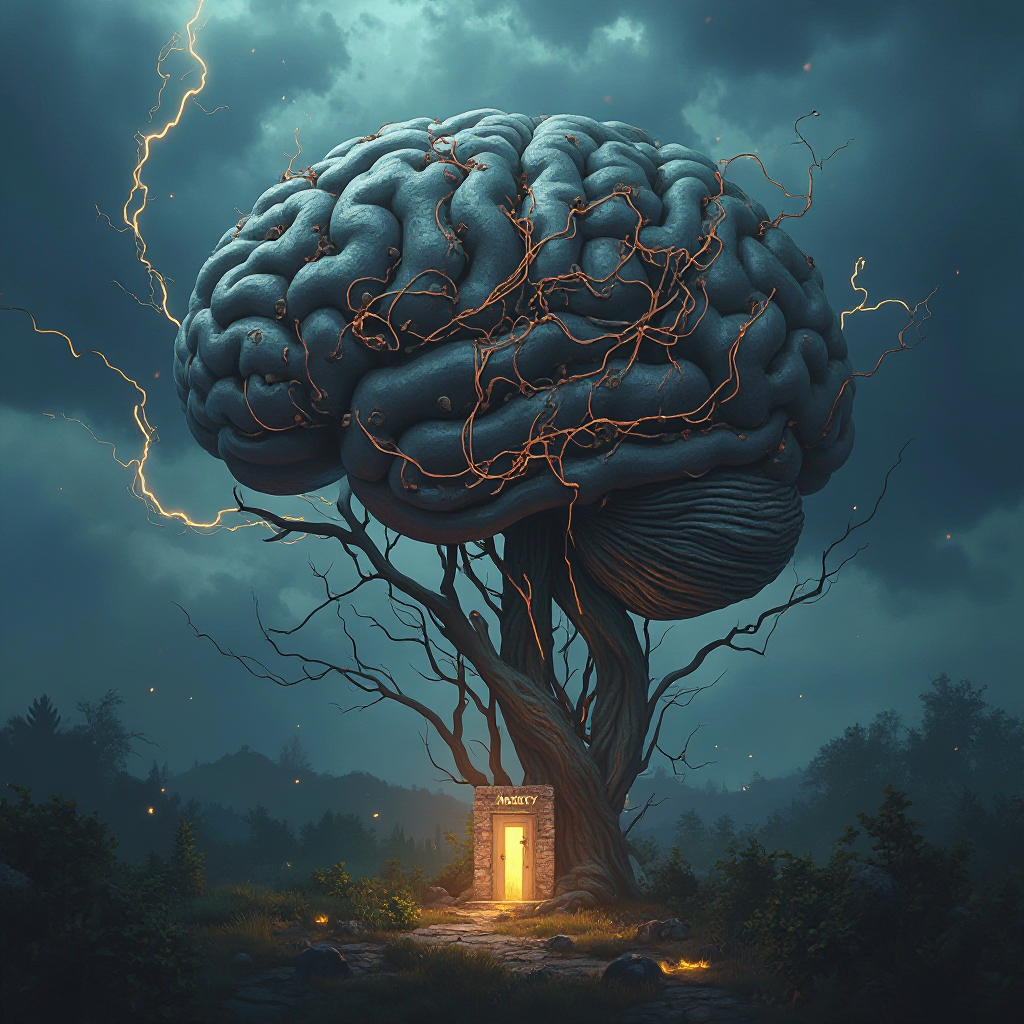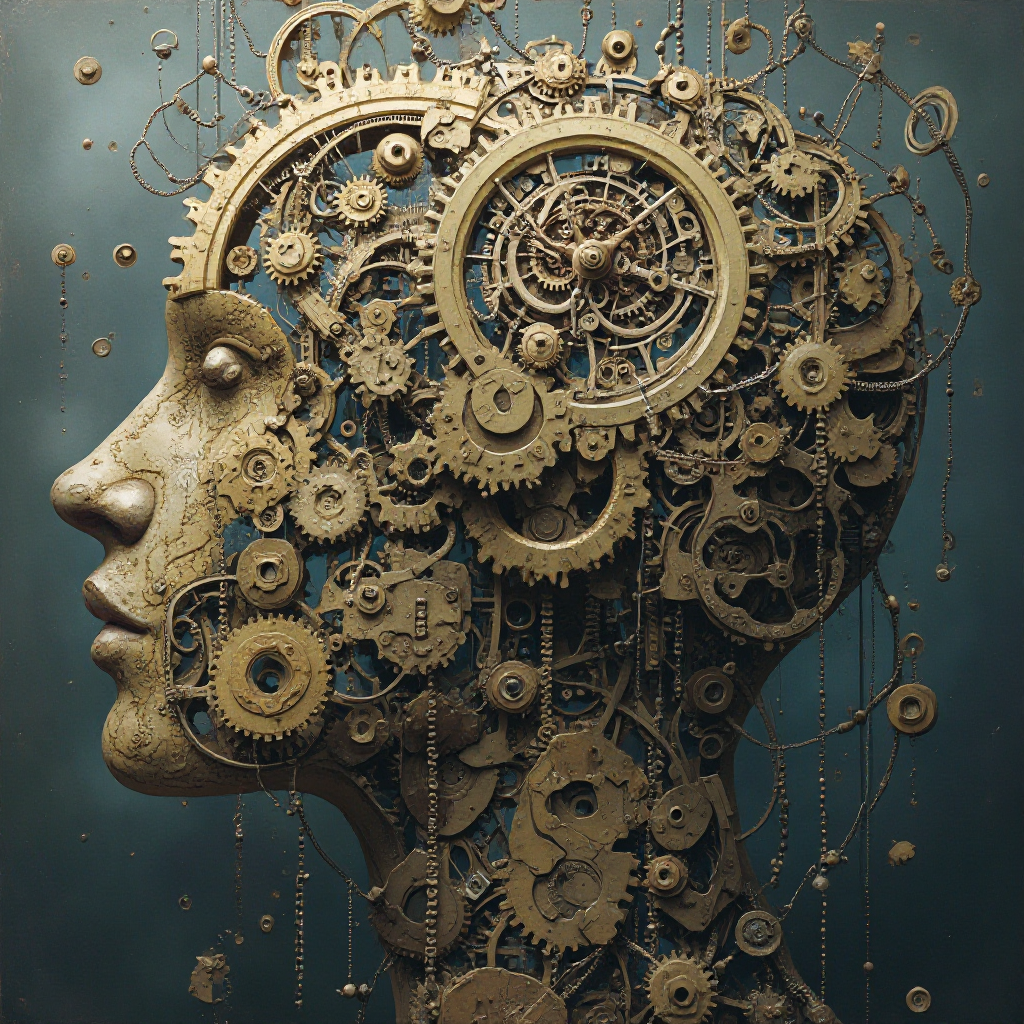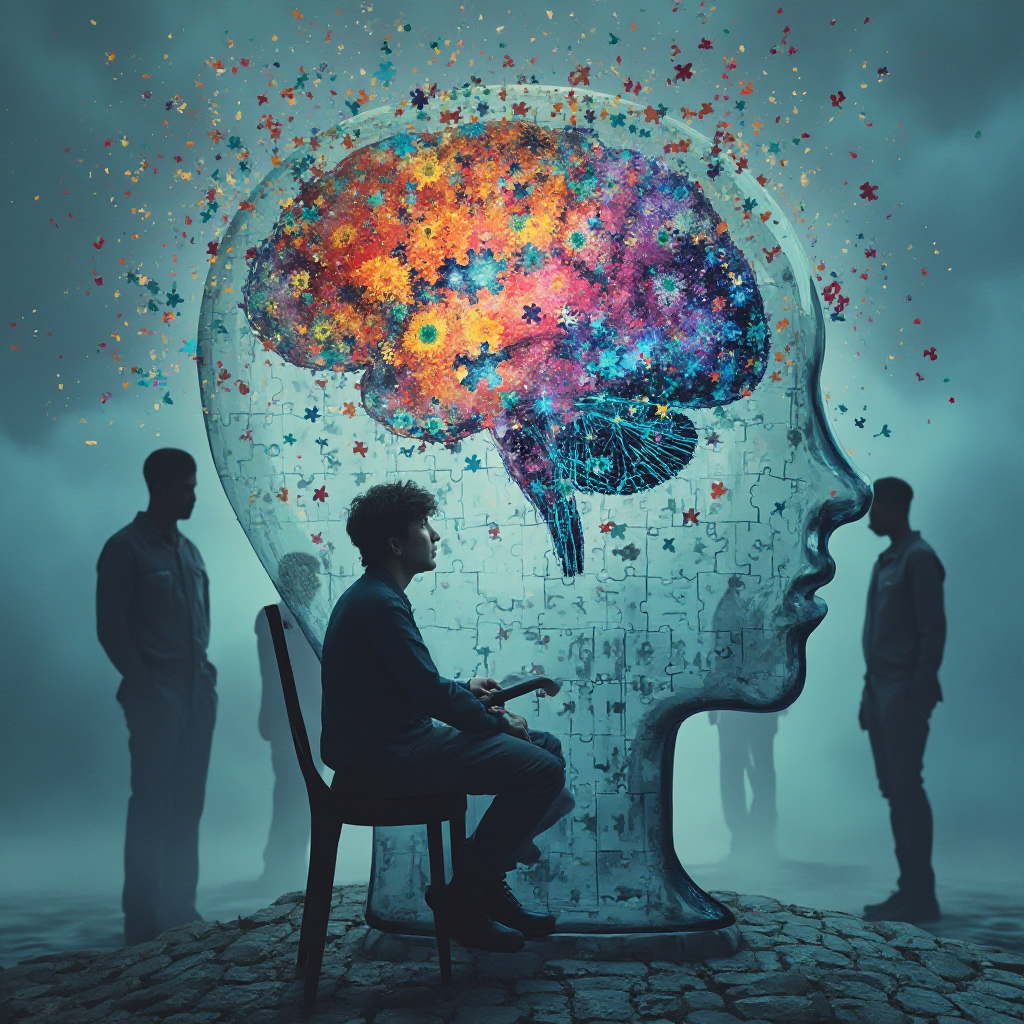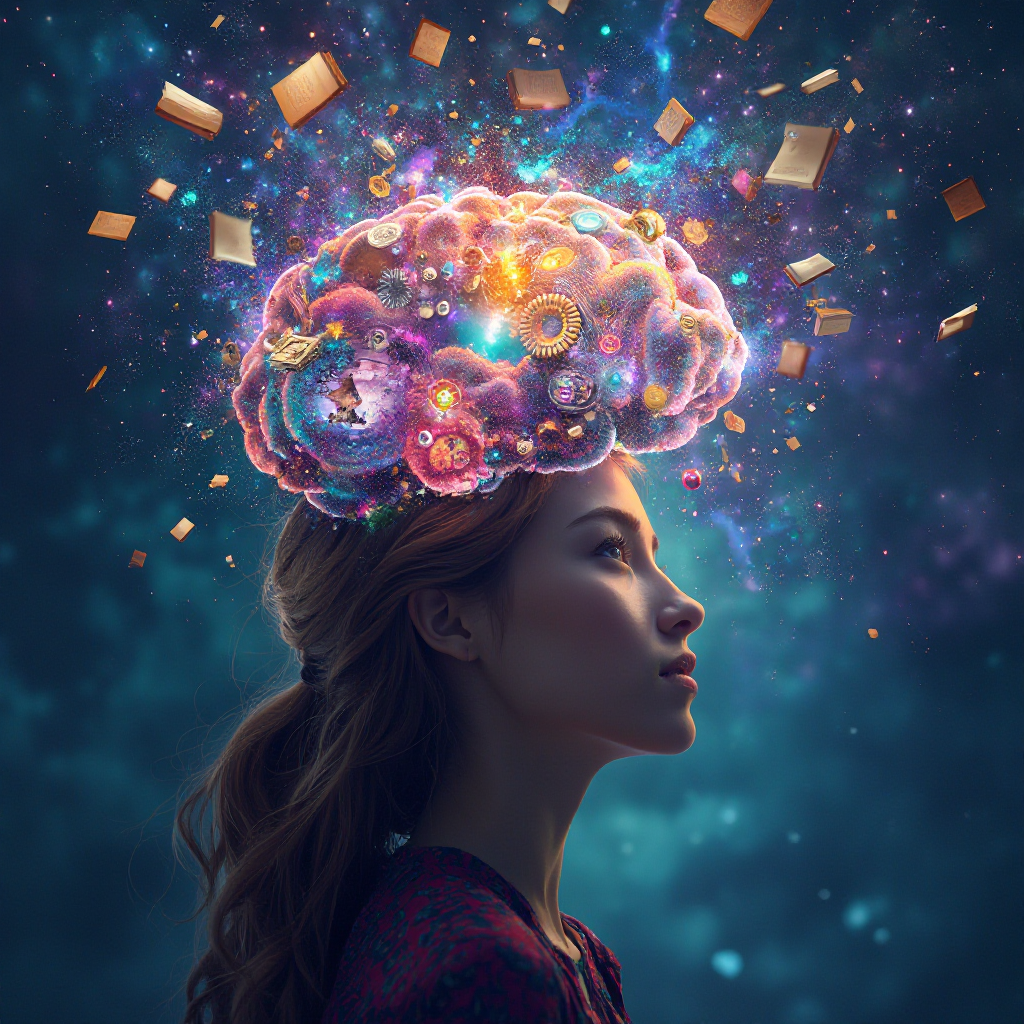Unlocking The Secrets Of Anxiety And Depression In Your Brain
Unlocking The Secrets Of Anxiety And Depression In Your Brain
Unlocking The Secrets Of Anxiety And Depression In Your Brain
In today’s speedy world, feelings like anxiety and depression are really common buddies for lots of folks, hitting millions no matter their age or who they are. These mental health struggles ain’t just being sad or worried: they’re tricky problems that start with how our brains work. Knowing how the brain affects anxiety and depression takes some of the mystery away and helps us get a grip on feeling better emotionally. As we look into this cool topic, we ask you to see how our brain decides how we feel and how that changes our mental health.
The link between our brain and feelings is deep and layered. Our thoughts and how we react to stuff depends on the brain’s neural routes and chemical talks. If we check out the brain’s job in anxiety and depression, we’ll see how neurotransmitter unbalances, brain changes, or even stress reactions play a part in these conditions. This peek inside not only helps us understand better but it might also open up new treatment and coping ways that can bring back balance in our days. Journey with us deep into emotions’ brain science! Let’s see how knowing things can become your good friend in finding mental peace.
The Brain and Feelings
Feelings are tricky things that happen because of many jobs the brain does. If something makes us feel – like being happy from someone’s praise or worried cause of a deadline — the brain jumps in and works hard to figure out and manage these feelings fast. In the brain’s office to process emotions, there’s the limbic center, which has big parts like the amygdala, which we sometimes call the brain’s “fear chief,” becomes super busy when there’s a danger or stressor, sending messages that may lead to feelings of anxiety. On the other hand, the prefrontal brain help us control these feelings, guiding us to view things and make choices using reason, not just feelings.
For peeps with anxiety and depression, that dance between these brain places doesn’t go right sometimes. An amygdala that works too much might cause extra fear or worry. If the prefrontal part doesn’t do a good job at calming things down with good thinking. This problem can make a circle where anxiety brings more worried thoughts, which pumps up the amygdala and slows the calming work of the prefrontal bit. This understanding is important: we gotta see how brain chemistry steers our emotional health and ties into conditions like anxiety and depression.
Plus, the hippocampus is key in making memories connected with emotions, which could make anxiety worse when old bad experiences come back up. This part aids us to learn from what happens to us, but if chronic anxiety or feeling low is present, it might become crowded, making it hard to learn new stuff or handle stress well. This shows the tight bond between memory and emotion in mental health, showing why some triggers can give us huge emotions based on old happenings.
As thinkers peek more into how the brain handles emotions, we get meaningful clues about how these brain places work together and change how we’re feeling mentally. Grabbing this stuff about anxiety and depression helps us see why directed actions that deal with these brain things matter. This info not only pushes folks to look for helpful treatment but also grows our thinking on how our brains mold our emotional maps.
Brain Messengers and Their Role
Brain messengers, these chemical friends, are really key in softening our emotions, moods, and overall mental wellness. Some big shot brain messengers linked to anxiety and depression are serotonin, dopamine, and norepinephrine. Serotonin, the “good-feeling” brain messenger, is really big for keeping mood even and giving feelings of happiness and okay-ness. When serotonin is just the way it should be, people generally feel more balanced; but low levels of serotonin often link to feeling low and anxious.
Ever thought why sometimes it’s hard to shake off a bad mood? Or why certain triggers make us overthink things? When we dig into the neuroscience of emotions, we start getting a peek into why our brains might trip us up at times. Maybe the connections in our heads aren’t firing just right, or maybe something else is going on up there – who knows? But here’s something: haven’t you wondered what new neat solutions might come up when we understand this brain stuff better? It’s kind of wild to think about where future discoveries could take us, isn’t it?
Dopamine, a biggish thing in our brain party, gets often called the “feel good” stuff. It’s super important for how we feel happy and want to do things. But what happens if there’s too much or too little of it? Well, have you ever felt down and not want to do anything? That might be dopamine being out of whack. Norepinephrine is another important player: in how we deal with stress, making us more awake and on alert. But, if there outta balance, it might make us feel super nervous or unable to handle tough situations. You ever feel that way?
These brain chemicals work together in subtle ways, balancing act of sorts, and when they don’t, things can go sideways. Like, maybe stress keeps us for weeks and makes norepinephrine go up while serotonin goes down, it could really mess with our mood and make life hard, no question. Ain’t it interesting how these simple chemicals shape our lives? Doesn’t it make you wonder there is more to learn?
So, it’s really important to know that the way we live — like how we eat, move around, and sleep — can change how brain chemicals work. For example, did you know that eating foods with lots of omega-3 fats, those fishy oils, might help your happy brain chemical, serotonin? And doing exercise often can give your feel-good chemical, dopamine, a big boost. By getting these good habits, folks can try to stay happier and maybe help feel less worried or sad from there unbalanced brain stuff, but who nose? It’s interesting to think about, don’t you think?
Genes and Outside Stuff
Thinking about why we get worried or down? Yep, it’s about our genes and our world. Scientists find out genetic makes us more likely to feel anxious or sad. For example, if someone in your family gets sad or scared, maybe those feelings pass on to you. Certain genes, those DNA bits that mix with chemicals like serotonin, dopamine, and norepinephrine, may tell how our heads handle feelings and stressness. This setup of genes works with our life stuff to shape if we stay happy or not. Maybe that makes ou wonder: how much of it is in our bodies, and how much is around us? It’s a fun question to ponder.
Thinking about hitch life can make us overlook that lot of things around us also matter very much, right. Stuff that happen to us, like bad things as children — yeah, like those can really mess with how our brains feels. Imagine someone going through a big mess: their brain might start ringing alarms for stress all the time because the part that worry’s the most loves to act up even in simple situations sometimes.
And what about how we eat, move, and sleep: these things can change how our brain works too. Ever thought how eating junk food without real vitamins affects how you feel? Yup, makes it harder for there brain to manage feelings. But on the bright side, getting some exercise can make your brain do its work better by giving you mood boosters.
Then we got our friends and family, they can be super important. Good people around you — they make hard times easier, don’t they? But being alone or with not nice folks, that can make you feel worse. It’s just like nature meeting stuff around us, these things together make up how we feel inside.
How do you feel about this: thinking over the environment and the science in the head, we should maybe just start thinking about both, try to talk about it more, maybe? This gives us ideas about us and help us search for ways that make us feel better in more than one way!
In short, both family history and things around us matter a lot for how we feel anxious or sad. We can’t really change what we get from family: but knowing how these things mix can help us, you know? Making friends and living healthy lifeways can lessen the bad effect of anxiety and sadness in our lives. Getting this idea gives people power, to understand their mind health better. Who knows? They might find good ways to handle it and get more useful advice.
The Gut-Thought Link
Hey, ever heard about how the tummy and mind are linked? This is a hot topic today ’cause it might change how we feel anxious or sad. People even call the belly the “back-up brain,” ’cause of all those nerve cells and how it helps our overall begging health. So, what’s this gut-mind connection thing? Ok, it’s kinda like a two-way street letting your stomach talk with your brain. Pretty cool, right?
Studies show that bad bugs in your tummy, named dysbiosis, can make you more freaked out and might cause signs of anxiety or sadness. So, got you thinking, huh? How do we keep our guts great and minds chill?Eating is also a vital factor in the healthy functioning of a gut microbiome, subsequently influencing moods. As an example, high intake of processed foods, sugars, and unhealthy fats may favor inflammation and the imbalance of healthy bacteria.
On the other hand, there is a possibility of improving gut health by taking foodstuffs rich in probiotics, i.e. yogurt, kefir, and fermented vegetables, which can potentially reduce symptoms of anxiety and depression. Also, fish and flaxseeds contain omega-3 fatty acids which have been associated with a healthier mood and cognitive abilities. People can discover that their anxiety and stress response can be reduced greatly by making a balanced diet which helps to maintain gut health.
In addition, the influence of the gut health is not confined to physical effects, but it can affect the emotional conditions as well. As an illustration, research has demonstrated that those who have more diversity in microbiota of the gut have lower reported cases of anxiety and depression.
This implies that a prosperous gut environment can serve as a buffer against stress and resiliency in the events that occur. In the process of further investigating this relationship, we can discover that mindful eating exercises in order to nurture our gut may be a much-needed coping mechanism in the treatment of mental illness.
The knowledge of the gut-brain connection is not only bringing out the importance of the diet but also emphasizes the interconnectedness of our body systems. It provides a reminder that mental health is not merely a product of brain chemistry, but it is affected by lifestyle choice and general physical wellbeing.
The more we learn about this amazing connection, the more it becomes obvious that the maintenance of our gut can be a potent weapon when it comes to fighting anxiety and depression and improving the overall emotional health of the body.
Therapy Strategies: the Middle Ground between Science and Wellness
A complex approach is also likely to be effective in the context of anxiety and depression treatment. Conventional treatment modalities such as medicine and psychotherapy are the foundation of mental health treatment. Antidepressants, including selective serotonin reuptake inhibitors(SSRI), act by raising serotonin in the brain, which may assist the raising of mood as well as diminishing anxiety.
These medications will correct the imbalances of chemicals and many people who have problems with such conditions will find relief. Conversely, psychotherapy and most notably cognitive-behavioral therapy (CBT), provide the patient with the mechanisms through which they can detect and replace negative ways of thinking, which helps them to become resilient and better emotional regulators.
Over the last few years, neuroscience has led to the development of novel treatment modalities which combine scientific knowledge with holistic practice. Neurofeedback is also one of the emerging techniques that are being used to assist people to learn how to control their mental states by using real-time demonstrations of the activities of their brains.
Neurofeedback should be used to improve self-regulation and decrease signs of anxiety and depression by training the patients to change their brainwave patterns. The other potential direction is mindfulness-based interventions which aim to develop awareness and the acceptance of the present. Experiments have proven that practising mindfulness often can cause brain structure and functioning to be modified to ensure emotional stability and lower stress levels.
As we delve into the complexity of the relationships between the brain and mental health, it is important to remember the contribution of lifestyle factors to treatment. An integrative strategy, such as dietary interventions, exercise, and social support, can have a significant effect on mental health.
As an example, a healthy diet containing high amounts of omega-3 fatty acids and whole grains may have a positive effect on the functionality of neurotransmitters, such as serotonin production. Likewise, exercise has been found to elevate mood and decrease anxiety because of the release of endorphins.
Finally, the process of identifying an appropriate treatment plan involves cooperation between people and their healthcare providers. With the changing environment in the mental health treatment sector, the integration of the traditional therapies and the new methods provides a chance to achieve greater control over the anxiety and depression. Being aware of these issues and supporting the idea of a personal approach, one will be able to take active measures to enhance mental health.
Self-Management Strategies of Symptom management
It may seem too hard to cope with the issues of anxiety and depression, yet it will help to implement self-help techniques into your everyday life and notice the difference. The best way is to have a structured plan that encompasses time in doing things that one loves and that brings fulfillment to him.
Hobbies like painting, gardening, or even playing a musical instrument can be used to increase the dopamine levels which is the neurotransmitter of pleasure and reward. To the extent that you spend time on such entertaining activities, not only do you take your mind off the negative thoughts but also, you enhance emotional health.
Besides taking up enjoyable activities, self-care activities are also vital in regulating anxiety and depression symptoms. Even such basic habits as focusing on sleep, eating healthy food, and exercising regularly can cause a significant impact on your mental health.
As an example, the effect of physical activity has been shown to release endorphins and improve mood, thus assisting in the reduction of a state of anxiety. It is also possible to use mindfulness techniques, including yoga or meditation, which will make you feel calmer and make you more attentive to your thoughts and emotions without being judgmental.
The other important aspect of dealing with anxiety and depression is the creation of a great support system. It is also possible to feel a sense of belonging by surrounding yourself with supportive friends or family members or support groups to mitigate feelings of isolation. There is nothing to be afraid of to contact and tell me about your experiences, in some cases, you can speak about your feelings and it can make them a bit lighter.
It is also possible to consider becoming a member of a local or online support group where people can exchange two similar experiences. This relation can be such a validating one and provide practical information on people who also go through their mental health experiences.
Lastly, it is necessary to remember that self-help strategies should not replace professional treatment when necessary. Although these practices may promote your psychological health, they must be used in conjunction with a therapy or medication provided by your healthcare provider.
It can be achieved by empowering oneself with information about anxiety and depression, as well as self-management and community assistance in the active management and prevention of this condition, leading to a healthier and more balanced life.
The Future of Psychological Research
The future of mental health research is changing fast, especially on the field of anxiety and depression. The prevailing trends point at an increasing amount of interest in the intricate interaction between brain functioning, genetics, and the environment.
An example is that, neuroimaging technologies are progressively being studied to uncover information about the neural processes that may be involved in emotional regulation. Mapping such pathways offers scientists hope to discover biomarkers that can be used to determine the susceptibility of an individual to anxiety and depression, and eventually leading to more personal forms of treatment.
The study of cognitive functions and their connection with mood disorders is one of the exciting areas of research. Research is exploring the ways in which emotional resilience can be developed by cognitive training and neuroplasticity.
To illustrate this, our capacity to change our thinking as circumstances change when we become stronger in the area known as cognitive flexibility has provided promise in alleviating the symptoms of anxiety and depression. Through adaptive thinking patterns, such therapies can empower individuals to have a greater handle over their emotional reactions and their general mental health.
Also, the discoveries on the relationship between the gut-brain are transforming our treatment of anxiety and depression. Given the complex interconnections between gut microbiota and brain health, which researchers are discovering, there is a possibility in creating new dietary interventions, which would have the effect of regulating mood.
As an example, probiotics and prebiotics can serve not only in the support of the digestive system but also in a positive effect on neurotransmitter formation and cognitive activity associated with mood. This holistic approach highlights the need to adopt lifestyle factors and conventional treatment approaches.
The future of mental health research generally promises a lot in terms of improving our knowledge about the condition of anxiety and depression. As technology is improved and a multidisciplinary approach to treatment is taken, we are at the threshold of finding new solutions that would change the lives of people with these ubiquitous conditions. Research is still in progress, and it strengthens the message that one should not ignore the developments in mental health and be optimistic that treatments will be made in the future.
Conclusion: Understanding Your Mind for a Healthier Tomorrow
To conclude, the brain is the central part of the anxiety and depression experience, as it affects our behavior, thoughts, and emotions in a complicated way of neurobiological processes. Learning more about the way brain structures and neurotransmitters influence our mental health, we would have an opportunity to appreciate the complexities of the conditions. Since the effects of chronic stress to the gut-brain relationship, it is evident that the biological and environmental influences intertwine to define our emotional state.
On your way of anxiety and depression, keep in mind that you are not weak seeking assistance. Regardless of whether it is therapy, medication or self-help techniques, there is a lot of help that can assist you in maintaining your mental health. Be knowledgeable and active regarding your health; being in control of your mental health may result in a happier, better life.
neuroscience, brain chemistry, emotions, mental health, neurotransmitters, stress response, serotonin, dopamine, cognitive functions, coping mechanisms,
Individuals experiencing anxiety and depression, mental health enthusiasts, students studying psychology, caregivers of those with mental health issues, general readers interested in mental wellness,









Leave A Comment